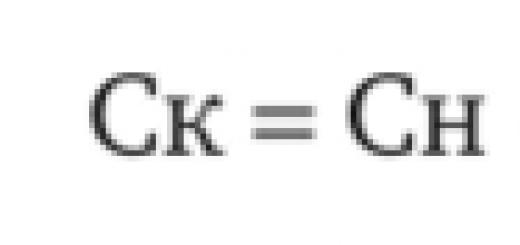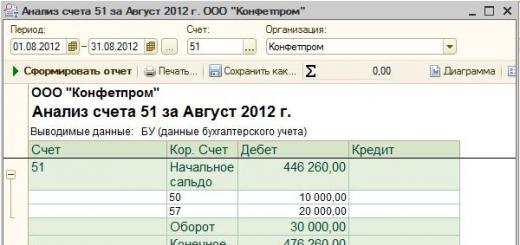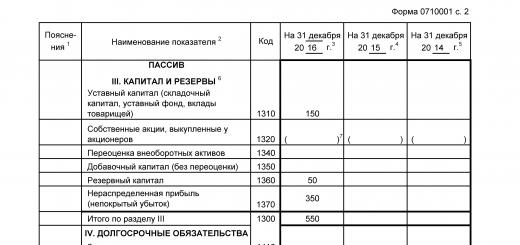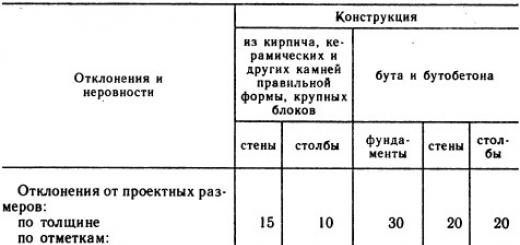The sphere of audit in Russia has been in a situation of permanent reforms for two years now. These reforms are by no means ordinary. Their diversity and intensity convey an emotional background to the entire audit community, so that from the “deck of the audit ship”, for example, one can hear the speech of not only individual auditors, but also their representative assembly: “Auditors from the Far East region present at the round table discussed the state of the market audit services and came to a common opinion that the country is consistently taking measures aimed at the complete elimination of domestic audit, at the active displacement of small regional audit companies from the audit services market” 1 .
What are these activities? This is the introduction of the institution of self-regulatory organizations, numerous conditions and payments associated with joining SROs, changes in quality standards, quality control, the introduction of an external quality control system by Rosfinnadzor, changes in the Federal Law "On Auditing" and much more.
But the most shocking among the audit reform measures in Russia was the new attestation for already certified auditors, mentioned in the Federal Law "On Auditing" as an exam for a unified qualification certificate, passed "in a simplified manner." According to the Law, auditors have the right to submit it before January 1, 2013. The law does not oblige auditors to pass "simplified" tests, but it severely limits the participation in audit activities of those who do not become the owner of a single certificate. From January 1, 2012, such auditors will no longer be able not only to sign audit reports of publicly significant organizations, but also to inspect banks, state unitary enterprises with a state ownership share of more than 25%, mutual insurance companies, investment funds, stock exchanges and other types of objects mentioned in Article 5 of Part 3 of Federal Law No. 308 of December 30, 2008.
The Ministry of Finance of the Russian Federation became the body entrusted with organizing the exam. In September 2009, 9 months after the publication of the mentioned Federal Law, a draft regulation on a simplified exam is published on the website of the Ministry of Finance, in which its outlines appear.
The exam promised to be tough. Each auditor was given an "individual test" of 60 (or 30) questions. Questions from several areas (depending on the type of audit certificate) - mainly on accounting in Russia and in European countries (IFRS). It was proposed to teach "ordinary" accounting of commercial organizations to auditors who had a certificate only of a bank audit certificate (recall, this is 4.6% of auditors). The remaining 95.4% of certified professionals needed to comprehend the features of accounting in special areas and sectors of the economy: banks, investment funds, non-state pension funds, insurance organizations, stock exchanges, etc. In addition, the exam offered to test knowledge of a number of international and Russian anti-corruption laws, federal standards in the field of audit quality control, etc.
The output was a rather large volume of questions that required knowledge, which you can master in a couple of months of classes in training groups, or on your own. At the same time, complete isolation from the world is necessary with textbooks and printed texts of laws, instructions, regulations, and regulations (a total of several thousand pages of typewritten text).
It is curious that, against the background of strictness, the philanthropy and humanism of the developers of certification were manifested (apparently, anticipating the severity of the burden for the whole professional community, mainly those who are on permanent business trips to the objects of inspections, a tear rolled down the cheek of the developers), at least in the original form of the Regulations on the exam handed over in a simplified manner. In this version of the Regulations, auditors were offered a benefit that entitles them to take a special advanced training course instead of taking a number of areas of knowledge. Three months after the publication of the Regulations (at the beginning of November 2010), the Project turned into a Regulation approved by Order of the Ministry of Finance of the Russian Federation of September 30, 2010 N 118n (that is, retroactively), but the promised benefit disappeared from it.
Auditing self-regulatory organizations were outraged by the fact that the promised relaxations were canceled, and even met with the leadership of the Department for Regulation of State Financial Control, Auditing, Accounting and Reporting 2 , and also wrote letters to the Minister of Finance of the Russian Federation 3 did not return the exam.
Hard times have begun for Russian auditors. At the end of 2010, all six self-regulatory organizations created the Unified Certification Commission (JAC), which should directly prepare examination tests, enter them into a specially ordered computer program, plan a schedule, conduct the exam itself, and publish the results. The JAC website actually appears only after the New Year holidays, although there was news from December 30, 2010 4 (it is amazing how significant the “backdating” phenomenon is in our country!)
From the beginning of 2011 until mid-March, there was a temporary lull, which was only interrupted from time to time by new events: for example, information about the fee charged for passing a simplified exam appeared on the JAC website. Its cost for those passing certification was 10,000 rubles 5 . The amount was 500% more than the auditors paid for the primary (not simplified!) exam, when it was supervised by the Ministry of Finance of the Russian Federation. The establishment of this amount of payment caused outrage in the audit community, and it has not subsided so far. The Ministry of Finance of the Russian Federation also recommended lowering the price for the exam, but, as it were, was unable to influence pricing, since formally the EAK was not established by the Ministry of Finance, but by self-regulatory organizations of auditors. It is reasonable that the one who founded it, let him figure it out himself (such intonation sounds in the answer of the Ministry of Finance of the Russian Federation to self-regulatory organizations of auditors). 6
The Unified Certification Commission was solemnly adamant, but by August 1, it was ripe for “sort of” concessions, and offered a 50% discount on exam fees, but only for such categories of auditors, which, according to the audit media 7, are unlikely to be even a hundredth of communities. The JAC classified such rare categories of representatives of the audit profession as privileged ones, such as war veterans, liquidators of the Chernobyl accident in 1986-1987, donors - citizens awarded the badge "Honorary Donor of Russia" or "Honorary Donor of the USSR".
In case of failure in the exam, re-taking was allowed, but until the end of the summer of 2011, there were persistent rumors in the audit environment that the auditor could count on only two additional attempts. The doubts were dispelled by the JAC itself by posting an FAQ on its website in an article entitled “Simplified does not mean simple” 8 , where the Director of the Commission gives answers to the most controversial questions. And in response to the question “is the number of attempts limited?” a solemn “no” sounds. However, each new attempt to pass the exam will cost the auditor again 10,000 rubles. Indeed, there is some invisible financial line between simplicity and simplicity...
The situation was complicated by the fact that for quite a long time it was not clear how to prepare for the exam. A lot in the preparation methodology depends on how the test question is formulated. For clarity, we will give an example from the field of the exam "accounting in banks". It is known that the bank chart of accounts contains several tens of thousands of numbers. When an accountant is certified to work in a bank, the qualification requirement for him is not only knowledge of the names and rules of correspondence of these accounts, but also their numbers. These requirements are justified, since accounting in banks is an area of specialization that has been studied for several years in universities that train employees of credit organizations. Therefore, the test question for a bank accountant can be formulated as follows:
“The funds were credited to the correspondent account of the bank with the wrong name of the client:
Answer options:
a. D 30102 K 47418
b. D 30102 K 47417
c. D 30102 K 47416"
From an auditor who is not familiar with bank accounting (we recall once again that these are holders of a general auditor certificate, which make up more than 9/10 of the entire audit community in Russia), such a wording of the question requires knowledge of account numbers. This means that during preparation, he must spend a long time memorizing the correspondence of the names of account numbers to their numbers. But if the name of the account is revealed in the test question, then such memorization is not necessary.
The Unified Attestation Commission did not disclose information about the nature of the tests for a long time, and published several sample test questions (from 6 to 8 in each area of the exam) less than a week before the first exam, scheduled for March 17, 2011. However, to understand how to prepare for the "simplified tests", the proposed options were clearly not enough!
It is possible that JAC was too concerned about the security of the test base. Indeed, the Simplified Exam Regulations speak of unprecedented measures against unauthorized access to test questions. Thus, according to Regulation No. 118n, the EAK “ensures the safety of documents and materials related to the conduct and passing of a simplified exam”; Further, the text of the document states: “The Unified Certification Commission ensures the implementation of the necessary organizational and technical measures to protect the list of questions offered to applicants for a simplified exam from unauthorized or accidental access to it, destruction, modification, blocking, copying, distribution of questions, as well as from other illegal actions” 9 .
In addition to issues of security of access to tests, the Regulation refers to the obligation of the EAC to periodically update the test database: "The list of questions offered to applicants for a simplified exam is subject to quarterly updating by at least 30 percent." 10
In practice, the database of questions is updated much more significantly than 30%. The auditors who took part in the exam two times (and more than twice) testify that each new exam session the tests change very much, including in terms of the scenario of the question. For example, in one case, the questions are formulated according to the principle “insert the missing word” from the normative act, and in the other, it is proposed to solve a problem or an economic situation. Neither the JAC methodologists, nor any other authorized persons inform anyone how the questions will be formulated. The auditor comes to the exam, sits down at the computer and sees the questions of his test on the screen.
Any professional testologist or methodologist who knows the principles of certification should understand that such an approach directly affects the specifics of training and the amount of time spent on it. If it is required to memorize a normative act as a “school poem” in order to accurately remember the sequence of words and not make a mistake in the answer option, a load on memory is required. It takes a lot of time for such “memorization”. In the case when a test question requires solving a problem, other skills and abilities are relevant, but you need to prepare differently.
It is logical that for the purposes of high-quality preparation for a simplified exam, it was necessary to start with methodology, teacher training. No one bothered to tell the audit community where and how to prepare for the exam, and not to let the auditors “free float” for an unlimited number of attempts in the amount of 10,000 rubles each. Apparently, in the executive body responsible for conducting the exam, a political, but not ethical balance was struck between the desire to fulfill the entire “letter” of Regulation 118n and responsibility to individuals - auditors who are forced to undergo additional certification in order to remain in their profession.
This is how the exam was organized by the JAC. Added to this is the weak methodological support of auditors by SROs of auditors. The first and best thing that SROs could do was to list simplified exam preparation programs as part of the mandatory annual professional development programs. But for the first time this was discussed in the Audit Chamber of Russia in May-June 2011, and practically similar training courses (in the form of 40 hours of annual advanced training with the issuance of a certificate confirming the validity of the auditor's certificate) began to be counted no earlier than the end of August 2011.
The first to respond to the challenge of the simplified exam were educational and methodological centers (TMCs), which conduct advanced training courses for auditors. They offered their (and hired from universities) teachers of disciplines tested on a simplified exam. However, the UMC acted at their own risk, not knowing the content of the questions and the nature of the tests.
We should not disregard the fact that auditors are no longer students (recall the statistics according to which almost half of Russian auditors are over 45 years old), and due to their professional employment, they simply have a catastrophic lack of free time. On rare weekends, when auditors are not on business trips, their children, relatives, and things that no one else will do for them are waiting for them.
All of the above greatly complicated the task of qualified auditors preparing for the conditions of additional certification. This was reflected in the number of those who passed, and in the results of the simplified exam. Here are the statistics:
The first exam appointed by the Unified Attestation Commission took place on March 21, 2011. 13 people were admitted, 5 passed (38% of those who passed). The results of the second exam dated April 27, 2011 are as follows: out of 25 auditors, 9 (39%) passed the test. The third exam was held on May 26, 2011: out of 42 applicants, 12 participants (28.6%) scored a passing score. The exam on June 29, 2011 was attended by 114 people; passed 38 auditors (34.9%). Fifth exam - July 20, 2011. Out of 158 auditors, 77 people (50% of those who passed) received a unified auditor certificate. August 10, 2011 passed the sixth exam. The number of candidates is 178, 54 people passed the exam (31%). On September 15, 2011, 85 applicants were admitted to the exam, 34 (41%) passed. On September 30, 338 applicants participated, 98 people passed (29.6%). The session of October 13, 2011 brought the following results: out of 145 auditors, 35 (25%) passed, on October 27, 2011, out of 456 applicants, 138 (31%) passed, on November 17, 2011 there were 481 who passed, and 144 (31%) who passed.
If we sum up all the results, then by now there have been 2035 admissions to the simplified exam. Among these admissions there are candidates who have taken the exam several times, so the absolute number of auditors is about 30-40% less, that is, about 1200 - 1300 people. Of these, 644 people were successfully tested (31.6% of the absolute number of attempts).
Thus, as of the beginning of December 2011, out of 26,566 auditors who are members of self-regulatory organizations of auditors, 644 people, or 2.42% of the Russian audit community, will receive a single auditor certificate!
The situation with a simplified exam at the end of 2011 directly affects the impending prospect of 2012, when, according to Law No. 308-FZ, auditors who do not have a single certificate are prohibited from participating in audit activities to audit all socially significant organizations and institutions subject to. For the Russian audit, this situation is, without exaggeration, a crisis. Suppose that by the end of 2011, according to the emerging progression of passing the simplified exam, another 200 people will pass it, that is, the number of holders of a single certificate by the beginning of 2012 will be 850 people. These auditors will have to check all subjects (only this sector represents more than 5% of the entire audit services market!), banks (a huge amount of work!), investment funds, stock exchanges, insurance organizations and other socially significant business entities, (their the list, apparently, is still far from the final edition).
Given the uneven distribution of auditors with a single certificate among more than 5,000 audit companies in Russia, by the beginning of 2012, the following two scenarios are possible:
The redistribution of the audit market, that is, the transfer of socially significant organizations as clients to those audit firms that already have auditors with a single certificate.
- "hunting" of audit organizations for auditors - holders of a single certificate, offering them better conditions (compared to auditors with "old-style" certificates).
In its worst-case scenario, the second scenario contains a dangerous potential when a single passport can become the subject of a lease 11 . On the other hand, the holders of a unified certificate received it at a high price, so it is unlikely that these auditors will treat their professional career so lightly (especially since the auditor will definitely be subjected to disciplinary, but it is possible that criminal liability for such actions).
It cannot be said that in this critical situation, self-regulatory organizations of auditors are inactive. There were attempts to influence the situation. Several letters and appeals to the Ministry of Finance of the Russian Federation, signed by all SROs, have already been mentioned. However, every single case of "reaching out" to the state regulator of audit activity was unsuccessful. The most desperate desire to influence the current situation is evident from the initiative of the SRO Institute of Professional Auditors of Russia (IPAR). The text of the auditors' appeal to the Federal Antimonopoly Service of Russia (FAS), the Ministry of Justice of the Russian Federation, the Ministry of Finance of the Russian Federation, and even the Supreme Council of the United Russia party 12 was recently published on the IPAR website in the "news" section.
The appeal is very emotional, its wording reflects a high degree of concern about the situation in which the entire professional community turned out to be "disenfranchised" and incapable of influencing its own destiny in any way. The repeated certification “violates constitutional rights”, “the procedure for passing the exam ... does not stand up to criticism”, mentions “incorrect wording of examination questions and answers to them”, etc. And yet, despite such an obvious “cry for help”, but taking into account the prevailing tendencies of the audit reform in Russia, one can try to predict in advance the response of state and party bodies - respondents to the appeal.
The audit reform in Russia is at a stage where a conditional “turn back” is no longer possible even in the event of a serious change in the political landscape. Let's express a private opinion: apparently, the audit reform is connected with the anti-corruption component. In the situation of systemic corruption that “goes off scale” in Russia, it is not so important (and even dangerous) to establish objective factors or even persons responsible for the formation and maintenance of a huge corruption “budget of the shadow economy”. It becomes more effective to try to use possible resources to correct this state of affairs. In the perspective of such a vision, an auditor who has direct access to accounting and reporting documents at enterprises subject to audit looks like a person who can be expected to inform the relevant authorities about facts of corruption or legalization of proceeds from crime.
In order to achieve the goals set by the reform, it is necessary to form a fundamentally new professional community of auditors, in which the quality of requirements for a representative of the “checking” profession will change. This is the fusion of extensive knowledge, experience, high standards of ethics, impeccable reputation, as well as an understanding of the tasks set by the state, that is, a certain kind of patriotism. Instrumentally, such a community is already being created with the help of the "simplified exam" as a serious barrier to the "old audit", and it is unlikely that the ideologists of the audit reform will be able to find something better than the activities of the Unified Attestation Commission. Therefore, it is unlikely that any of the recipients of the above-mentioned letter from one of the SRO auditors is interested in radically changing anything (perhaps, with the exception of the issue of pricing a simplified exam, which the FAS may be interested in).
As a development of battle events, in November 2011, the state registration of the National Union of Auditing Associations (NUA) was completed, created as an association of self-regulatory organizations of auditors: Non-profit partnership "Institute of Professional Auditors of Russia" (IPAR), Non-profit partnership "Moscow Audit Chamber" (MoAP), Non-profit partnership "Russian Board of Auditors" (RCA), Non-profit partnership "Audit Association Commonwealth" (AAS).
At the first, after registration, general meeting of the Union on November 23, 2011, the main attention was paid to the Address of Russian auditors to the President of the Russian Federation D.A. Medvedev and Chairman of the Government of the Russian Federation, Chairman of the United Russia party V.V. the catastrophic situation that has developed in the field of audit services is described. 13
No matter how events develop further, it is already obvious that the audit market in Russia is undergoing serious shocks. Only a few participants in this market, responding to the challenge of the times, offer services that are not aimed at attempts to politically influence current events (so far they have all turned out to be meaningless). Much more useful in such a situation is an economic solution to the problem of audit companies that find themselves in an extremely difficult situation. For example, the company "" already has a system for servicing audit companies, which allows them to survive in the audit services market by reducing customer service costs and maintaining their business.
The list of services for audit companies includes assistance in passing quality control by SROs, as well as control carried out by Rosfinnadzor; preparation of company auditors for a simplified exam, which involves both training groups and seminars on self-training methodology. A separate service that is already in demand today is customer service by specialists with a unified auditor qualification certificate. If we help ourselves, we will be able to save our common audit ship, and it will be able to survive any storm!
The qualification certificate of an auditor is issued on the condition that the person applying for it (hereinafter referred to as the applicant):
- 1) has passed the qualifying examination;
- 2) by the day of the announcement of the results of the qualification exam, has at least three years of work experience related to the implementation of audit activities or accounting and preparation of accounting (financial) statements. At least two years of the last three years of the specified length of service must be employed by an audit organization.
The applicant's qualifications are checked in the form of a qualification exam. The procedure for conducting a qualification exam, which includes, among other things, the procedure for the applicant's participation in the qualification exam, the range of questions offered to the applicant, as well as the procedure for determining the results of the qualification exam, is established by the authorized federal body.
An applicant who has received higher education in an educational institution of higher professional education with state accreditation is allowed to take the qualification exam.
The qualification exam is conducted by a single attestation commission, which is created jointly by all self-regulatory organizations of auditors in the manner prescribed by the authorized federal body. The constituent documents of the unified attestation commission, as well as changes made to them, are agreed with the authorized federal body before they are approved. The activities of the unified attestation commission are based on the principles of independence, objectivity, openness and transparency, self-financing.
For taking a qualifying exam, the applicant is charged a fee, the amount and procedure for collecting which is established by a single certification commission.
The decision to refuse to issue an auditor's qualification certificate is made if:
- 1) the applicant does not meet the requirements of paragraph 1 of this article;
- 2) after passing the qualification exam, the applicant is found to be inconsistent with the requirements of paragraph 3 of this Article.
The qualification certificate of the auditor is issued without limitation of its validity period. The procedure for issuing an auditor's qualification certificate and its form are approved by the authorized federal body.
The decision to refuse to issue an auditor's qualification certificate may be challenged in court.
The auditor is obliged during each calendar year, starting from the year following the year of obtaining the qualification certificate of the auditor, to undergo training in advanced training programs approved by the self-regulatory organization of auditors, of which he is a member. The minimum duration of such training is established by the self-regulatory organization of auditors for its members and cannot be less than 120 hours in three consecutive calendar years, but not less than 20 hours in each year.
Instruction
You can get an auditor certificate if you have a higher or secondary specialized economic or legal education and at least three of the last five years of work experience as an accountant, auditor, auditor, as well as a manager, researcher of an organization or a teacher of economic disciplines.
To obtain a certificate, you will need to pass a qualification exam and provide the following documents: - an application for a qualification exam in the prescribed form, - a notarized copy of the diploma, - a notarized copy of the work book, - a document confirming the payment of the certification fee, - a copy of passports.
Upon successful completion of the exam, you will receive a certificate of the auditor of the established form. If you do not start auditing within two years from the date of receipt of it, then it will lose its validity, which means you will have to retake the qualifying exam.
Please note that the certificate is issued for a period of three years with a subsequent extension. So, you will have to constantly improve your skills. In our country, those who have been certified for the right to carry out audit activities specialize in one type of audit: banking, stock exchanges, extra-budgetary funds, investment institutions or general. For each area of audit activity, it is necessary to obtain an appropriate certificate.
Upon receipt of an application from you to extend the validity of the qualification certificate, the commission has the right to appoint a re-passing of the qualification exam in two cases: - if there are reasonable claims against the auditor from the tax authorities, customers, as well as other auditors and audit firms; - in case of a significant change in the legislation applied to regulate audit activities.
Sources:
- get an auditor's certificate
The auditor is a prestigious and highly paid profession. It should be noted that since July 1, 2009, licensing in the audit has been replaced by self-regulation. That is, audit organizations and individual auditors need to join self-regulatory associations in order to have the right to engage in audit activities.
Instruction
Graduate from a higher education institution. If we are talking about an individual entrepreneur who wants to engage in audit activities, then the first necessary condition is basic education. A few years ago, auditors had to graduate from universities in economics or law. Now there is no such strict one, and you can become an auditor, having a philologist or even a physical education teacher in your hands.
Accumulate work experience in your specialization. At least 3 of the last 5 years you must have worked as an accountant, auditor or teacher of economics. It is counted on a permanent basis, as well as part-time in these specialties.
Attestation for the right to carry out auditing activities is, in accordance with Article 15 of the Federal Law of 07.08.2001 No. 119-FZ "On Auditing Activities" (Law), a test of the qualifications of individuals wishing to engage in auditing activities.
What is an auditor's qualification certificate and what requirements apply to applicants for its receipt is discussed in this article.
Auditor Qualification Certificate
Certification of auditors is carried out in the form of a qualification exam. Persons who have successfully passed the qualification exam are issued an auditor qualification certificate without limitation of its validity period.
However, at the same time, each auditor who has a qualification certificate is obliged, within each calendar year, starting from the year following the year of obtaining the certificate, to undergo training in advanced training programs approved by the authorized federal body. Education under advanced training programs is carried out by persons who have a license to carry out educational activities.
In accordance with paragraphs. 7, paragraph 1, article 16 of the Law, if the auditor violates the requirement established by the commented article to undergo training in advanced training programs, the auditor's qualification certificate.
The form of the form of the auditor's qualification certificate was approved by the Order of the Ministry of Finance of Russia dated April 25, 2002 No. 34n:
Decree of the Government of the Russian Federation of February 6, 2002 No. 80 "On the issues of state regulation of auditing activities in the Russian Federation" approved the Rules for the exchange of auditor qualification certificates issued in the prescribed manner before the entry into force of the Law, for certificates provided for by the Law.
According to paragraph 2 of the Rules, the exchange of auditor qualification certificates is carried out by the Ministry of Finance upon the application of the auditor (with the attachment of the auditor qualification certificate) after the expiration of the exchanged certificate without re-attestation.
On the form of the qualification certificate of the auditor, issued in the exchange order, the name of the central attestation-licensing audit commission is indicated, on the basis of the decision of which the exchanged certificate was issued, the number and date of the minutes of the meeting of the said commission, and the entry "certificate issued in the exchange order" is also made.
The exchange of the certificate is made within a period of not more than 30 days from the date of registration with the Ministry of Finance of the auditor's application for the exchange of the certificate. There is no exchange fee.
Mandatory requirements for applicants for an auditor's qualification certificate
According to paragraph 2 of Article 15 of the Law, these requirements are:
- the presence of a document on higher economic and (or) legal education received in Russian institutions of higher professional education with state accreditation, or the presence of a document on higher economic and (or) legal education received in an educational institution of a foreign state, and a certificate of equivalence of this document a Russian state document on higher economic and (or) legal education;
- at least 3 years of work experience in an economic or legal specialty.
According to paragraph 2 of Article 18 of the Law, one of the main functions of the authorized federal body for state regulation of audit activities is the organization, in accordance with the procedure established by law, of a system for attestation, training and advanced training of auditors in the Russian Federation.
Based on this, Order of the Ministry of Finance dated September 12, 2002 No. 93n approved the Temporary Regulation on the system of certification, training and advanced training of auditors in the Russian Federation, according to paragraph 2 of which certification, training and advanced training of auditors are carried out in educational and methodological centers (TMC), included in the state register of educational and methodological centers.
The temporary position determines:
- the procedure for inclusion, refusal to include educational and methodological centers in the state register of educational and methodological centers and exclusion of educational and methodological centers from the state register;
- procedure for certification;
- the procedure for conducting qualification exams for the right to carry out audit activities;
- procedure for training and advanced training of auditors.
© We draw special attention of colleagues to the need to link to " " when quoting (an active hyperlink is required for on-line projects)
In order to engage in audit activities, it is not enough just to get the appropriate education. It is necessary to meet several requirements at once, and most importantly, to obtain a document confirming the right to conduct an audit. The qualification certificate of the auditor is issued in accordance with the established procedure. We will talk about it in this article.
Who is an auditor
As mentioned at the beginning, an auditor is not just a university graduate in the direction of "audit". According to the Law of December 30, 2008 N 307-FZ (hereinafter referred to as the Law), which contains the main provisions on auditing, the auditor:
- has an appropriate qualification certificate;
- is a member of a self-regulatory organization of auditors;
- included in the register of auditors and audit organizations.
The task of the auditor and the audit itself is an independent verification of the accounting (financial) statements of the audited person to establish their reliability.
How to get an auditor's certificate
According to Art. 11 of the Law, an auditor qualification certificate is issued by the relevant self-regulatory organization (SRO), provided that the applicant for its receipt:
- passed the exam;
- has more than three years of experience in auditing or accounting. At the same time, out of the last three years, at least two must have worked in an organization specializing in auditing.
Only those persons who have higher education in a state-accredited educational program are allowed to take the qualification exam.
The exam is paid and is conducted by a single commission formed by the SRO of auditors in the manner prescribed by law. The commission must be independent and objective.
The certificate may be denied for the following reasons:
- the applicant did not pass the exam and (or) does not have the necessary experience in the field of audit;
- the education of the applicant does not meet the established requirements;
- the applicant applied for a certificate more than a year after passing the exam.
The validity period of the certificate is not limited, however, the auditor is obliged to annually undergo training provided for by the advanced training programs approved by the SRO.
Cancellation of the certificate
The SRO may decide to cancel the qualification certificate of its member if:
- the document was received on the basis of forged documents or by a person who does not meet the requirements specified in the previous section of the article;
- by a court verdict that has entered into force, the auditor is deprived of the right to engage in audit activities for a certain period;
- the auditor violated the principles of independence of auditors and audit organizations or audit secrecy;
- the auditor systematically violates the requirements of the Law or applicable auditing standards;
- the auditor's conclusion is recognized as knowingly false in accordance with the established procedure;
- the auditor has not been engaged in audit activities for the past three years, except for certain cases specified in the Law;
- the auditor, without a good reason, does not fulfill the obligation to undergo training in advanced training programs;
- the auditor avoids passing external quality control of their work.
The auditor can challenge the annulment of the certificate in court within three months.
A person deprived of a certificate due to violations of the law may retake the qualification exam no earlier than three years after the certificate was canceled, and if he is deprived of the right to engage in audit activities by a court verdict, then not earlier than the expiration of such deprivation established by the verdict.










